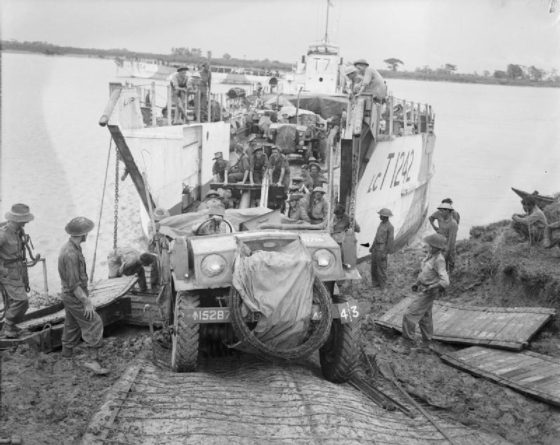
“Why is Waterloo such an important event in European history?”
By Mark Simner
ON JUNE 18, 2015, some 200 years after the final defeat of Napoleon Bonaparte, thousands of re-enactors and spectators gathered on the battlefield of Waterloo to commemorate an event that would change Europe forever.
Indeed, the Battle of Waterloo, fought between the Duke of Wellington’s allied forces and Gebhard Leberecht von Blücher’s Prussians on one side against Napoleon’s French army on the other, has become the most written about and studied clash of arms in history. Any visitor to a good bookshop will find a plethora of titles written about the battle, while countless war gamers continue to play and replay that fateful day on table tops and computer screens. But why is Waterloo such an important event in European history?

Rule Britannia
For the British, who were never able to field an army on the scale of its continental counterparts, it was seen as a significant military victory as well as a political one. Despite the fact that only about a third of Wellington’s allied troops were in fact British and that considerable assistance was rendered by Prussia later in the day, the principal leadership against Napoleon – in the form of the Duke – was provided by Britain. The defeat of Napoleon in 1815 allowed the British to exert major influence at the subsequent peace negotiations, thus protecting their interests in the eventual settlement.

France: Down and Out
For the French, who had experienced much upheaval and suffering since the beginning of the Revolution in 1789, the doomed Waterloo campaign put an end to a quarter of a century of war, punctuated by only several short periods of peace. Although France had enjoyed spreading its influence and mastery across much of Europe, it had exhausted the country both in terms of its economy and people.

The Continental View
For Europe, the bloodbath at Waterloo brought about a period of peace that would last for almost 100 years. Only a handful of disruptions, like Britain and France’s confrontation with Russia during in the Crimean War from 1853 to 56 or the Franco Prussian War of 1870, marred the peace. However, the legacy of the Napoleonic Wars saw the sowing of the seeds of nationalism that would continue to rise throughout much of the 19th-Century. A contributing factor to the European ‘powder keg’ that produced the First World War, romantic notions of nation can be traced back to the French Revolution and Napoleon’s exportation of such ideals to the countries he conquered. The unification of the German and Italian states, among others, are examples of this desire for national identity.

A New World Order
More recently, some have argued that the allies success at Waterloo paved the way for the establishment of the United Nations more than a century later. Evidence of this, they claim, can be seen in Lord Byron’s poem Childe Harold’s Pilgrimage, where the phrase ‘united nations’ is made in relation to Waterloo. It is said that Winston Churchill picked up on this during the Second World War, the term being later applied to the creation of the post-war intergovernmental organization.
More directly, the Concert of Europe, a loose federation of European powers established ostensibly to prevent future conflicts (a sort of proto-UN) was established after the defeat of Napoleon — most notably by Prince Klemens Wenzel von Metternich, Austria’s master diplomat and statesman.
 There are, of course, more mundane legacies of the battle that can be seen today throughout Britain. Countless roads are named ‘Waterloo’ and many public houses are called the ‘Duke of Wellington.’ Perhaps most famous of all, of course, is Waterloo Station in central London.
There are, of course, more mundane legacies of the battle that can be seen today throughout Britain. Countless roads are named ‘Waterloo’ and many public houses are called the ‘Duke of Wellington.’ Perhaps most famous of all, of course, is Waterloo Station in central London.
Mark Simner is the author of An Illustrated Introduction to the Battle of Waterloo and Administrator of the Napoleonic Wars Forum. Click here to follow him on Twitter.
(Originally published on May 17, 2016)










5 thoughts on “Watershed at Waterloo – How the Legendary 19th Century Battle Made Modern Europe”